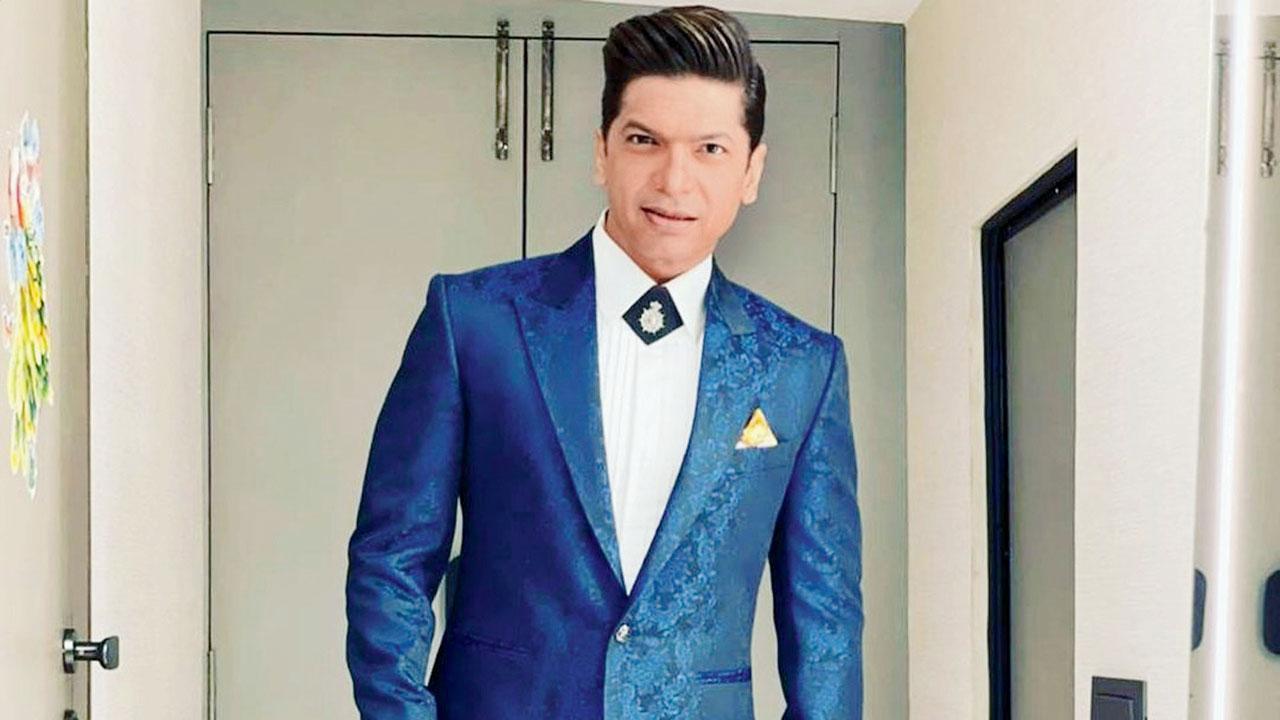One needs to be patient, but don’t treat the person like a patient-Shaan
8:06 AM
Posted by Fenil Seta

Admitting that his wife’s battle with depression was an eye-opener for him, Shaan addresses tackling the subject with Tanha Dil 2.0
Sonia Lulla (MID-DAY; November 1, 2021)
Well aware of the acclaim that the original song garnered, singer Shaan admits that the revisited version of Tanha Dil is not likely to evoke nostalgia. It’s a risk he’s willing to take, given that in addressing the issues of mental health with this version, he is bringing attention to a subject that is not only pressing, but also one that hits closer to home.
Edited excerpts from the interview:
You’ve spoken about wanting to make a song on mental health since a while, but why did you choose this one to address it?
Because no other line aptly summarized what someone battling clinical depression endures. These words encapsulate the feeling of loneliness and helplessness that they encounter. If anyone hopes to revisit [the ’90s song] and groove to it with this remake, they’re going to be disappointed. That’s not happening. This is a different song which only includes the crux of the old number.
What matters pertaining to mental health are being addressed in this number?
All of it. The subject hits closer to home because my wife [was diagnosed] with depression. For months, I couldn’t understand it. I had to learn that it was a condition that she couldn’t simply brush under the carpet. When people spoke about it, I’d find myself wondering why well-to-do people were going through it, and how the common man would [deal with situations] if the [wealthy] were battling depression. But I learnt that this has nothing to do with [being wealthy]. If an educated person like me could not understand it, how would another person comprehend the situation if their spouse or mother was going through it? Of course, we’ve taken liberties to make it cinematic and entertaining. We had to amend the first draft to tone down the lyrics. We don’t want to scare listeners. Establishing the solution is important.
As the spouse of someone who battled clinical depression, what did you learn about the importance of your role?
That it is important to not rush the person [during recovery] else the person may feel victimised. You need to be with the person, and [reason with them]. But you also have to be sensitive, lest they hide things from you. One needs to be patient, but don’t treat the person like a patient. The more normal you are, the quicker the person can [deal with it]. Having said that, the fight is for the individual to wage. Support is vital, but unless the person is strong enough to face it, it is tough. The person needs to fight the brain, with the brain.
Also, when the medication is needed, it must be taken. Don’t we take them for other conditions?
That’s where I went wrong. I was opposed to [my wife taking] meds because I thought once we walk down that road it would be tough to pull back. But, if you know that meds will help them, denying that chance is terrible.
After having been part of a variety of projects this year, what is in the pipeline for you?
We’ve done a lot of Bengali tracks during the puja [season] that recently went by. I’ve been part of [projects] by Pritam Chakraborty da’s Jam 8. And then there’s the film, Music School, by maestro Ilaiyaraaja. It is a true musical where the songs take the story ahead. It’s fascinating to be part of it. It may release in June or July next year.
This entry was posted on October 4, 2009 at 12:14 pm, and is filed under
Ilaiyaraaja,
Interviews,
Pritam Chakraborty,
Shaan,
Shaan interview,
Shaan wife,
Shaan wife depression
. Follow any responses to this post through RSS. You can leave a response, or trackback from your own site.
Subscribe to:
Post Comments (Atom)
Post a Comment